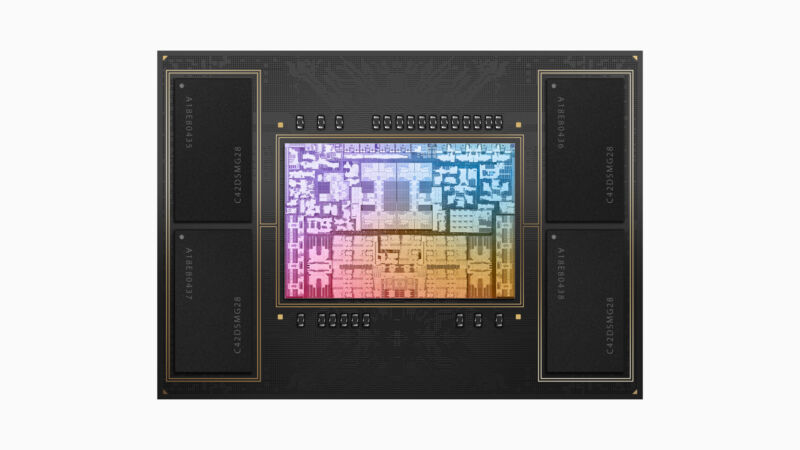Many Apple Silicon Macs still haven't made the jump from the M1 generation to the M2, and the Mac Pro is still using an Intel processor, but some app developers have already begun to see signs that Apple is testing members of the M3 chip family.
Bloomberg's Mark Gurman relays that the M3 chip in question has a 12-core CPU with six high-performance cores and six high-efficiency cores, plus 18 graphics cores and 36GB of memory. This all suggests the chip is some kind of M3 Pro, like the kind you'd find in a 14- or 16-inch MacBook Pro or a high-end Mac mini; the current base model M2 Pro uses six high-performance CPU cores, four high-efficiency cores, and 16 GPU cores. We can only guess at the specs of the regular M3, the M3 Max, or the M3 Ultra.
Though Apple has (mostly) ditched Intel, the two companies have taken a similar approach to improving their processors' performance in recent years: lean on architectural upgrades and small clock speed boosts to improve single-threaded performance on the big CPU cores while adding an increasing number of small high-efficiency cores to bolster multi-threaded performance for pro-level workloads that can use every CPU core you throw at them.
Intel has used this strategy to great effect in its desktop and laptop chips, though Apple has a significant power efficiency edge. AMD isn't using this kind of big-core-little-core hybrid approach in any of its CPUs yet, though early rumors say that the next-generation Zen 5 architecture could change things.
Gurman previously reported that he expects M3-generation chips to begin showing up in Macs later this year or early next, which would be roughly consistent with the year-and-a-half-or-so gap between the first M1 Macs and the first M2 models. Some products, like the 24-inch iMac or the Mac Studio desktop, could skip the M2 generation entirely, jumping directly from M1 chips to M3 models.
Gurman's report frames the M3 as a way to "entice customers back to the [Mac] lineup" in the face of lowered sales, which doesn't make a ton of sense—the current Mac sales dip is happening on the backs of updated M2 Macs like the MacBook Pro and Mac mini, so it doesn't seem super likely that another new processor will reverse the trend. Apple may be able to improve its sales on the margins by introducing slightly faster versions of its products, but in the end, the Mac will likely have to wait for the same thing as every other PC company—for people to start replacing all the tech they bought at the onset of the pandemic three years ago.
Introducing entirely new models that serve new kinds of customers could be a better way to improve sales. A 15-inch MacBook Air is said to be on the docket for Apple's Worldwide Developers Conference next month, providing a way for people who want a bigger screen to get one without paying for all the other stuff that comes with a MacBook Pro.



3175x175(CURRENT).thumb.jpg.b05acc060982b36f5891ba728e6d953c.jpg)
Recommended Comments
There are no comments to display.
Join the conversation
You can post now and register later. If you have an account, sign in now to post with your account.
Note: Your post will require moderator approval before it will be visible.